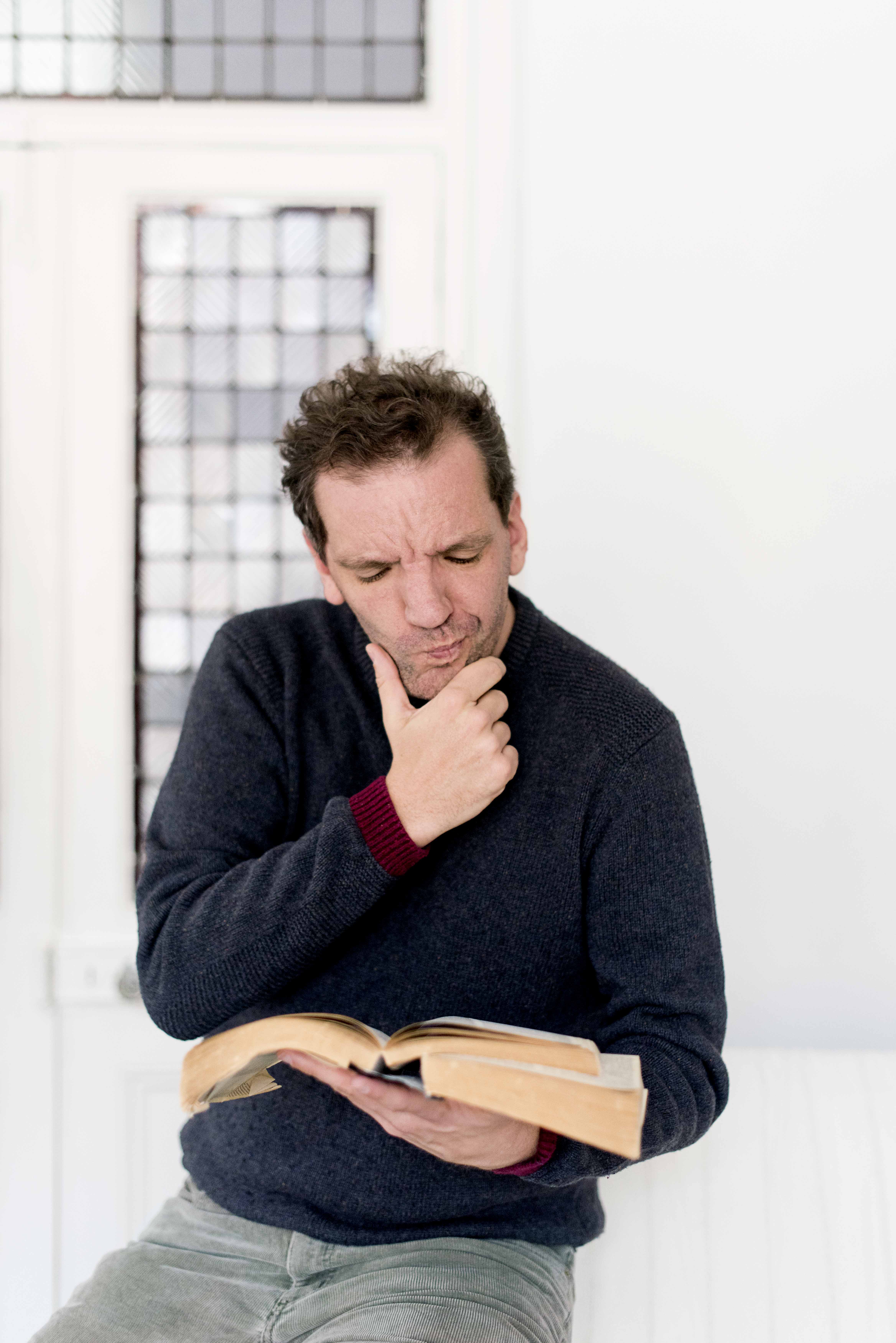Could a seemingly healthy individual, a figure known for laughter and wit, suddenly find themselves in the grip of a life-threatening medical emergency? The recent news surrounding Henning Wehn's heart attack serves as a stark reminder that even those who appear to be in peak condition are not immune to cardiovascular ailments, forcing us to confront the often-overlooked realities of heart health.
The entertainment world, and indeed the broader public, was taken aback by the unexpected news. The incident involving Henning Wehn, a comedian celebrated for his unique brand of humor that frequently touches on German stereotypes and cultural observations, ignited a wave of concern and introspection. It prompted questions not only about the well-being of the individual but also about the broader implications for public health awareness and the importance of preventative care. His experience, due to his prominent position in the public eye, has become a catalyst for discussion, highlighting critical aspects of health that are often relegated to the background until a crisis arises.
| Category | Details |
|---|---|
| Full Name | Henning Wehn |
| Profession | Comedian |
| Known For | Stand-up comedy, often involving German stereotypes and cultural observations; appearances on panel shows and documentaries. |
| Nationality | German/British (Dual Citizen) |
| Health Incident | Suffered a heart attack (reported) |
| Public Reaction | Widespread concern from fans and the general public; discussion on cardiovascular health. |
| Key Characteristics | Wit, charm, observational humor. |
| Career Highlights | Numerous stand-up comedy shows; appearances on panel shows like "8 Out of 10 Cats Does Countdown" and "Have I Got News For You"; various documentaries. |
| Health Awareness Impact | The incident has raised awareness of cardiovascular health, lifestyle choices, and early intervention. |
| Show themes | Unbiased look at charity, immigration, brexit and covid crisis, and climate change. |
| Official Website (Reference) | https://www.henningwehn.de/ |
Henning Wehn, a name synonymous with sharp wit and distinctive comedic commentary, has cultivated a loyal following over the years. His performances, which often feature astute observations on German culture alongside broader societal critiques, have resonated with audiences across the globe. The news of his heart attack therefore struck a chord far beyond the confines of the comedy circuit, generating a sense of shock and a collective pause for reflection. Fans, accustomed to his energetic stage presence and sharp delivery, expressed their concern, their thoughts immediately turning to his health and well-being. This reaction is understandable, given the sudden and unexpected nature of the event, which underscores the vulnerability that all individuals share, regardless of their public image or perceived physical fitness.
The incident quickly evolved into a trending topic. The speed with which information spreads in the digital age meant that news of Wehn's medical emergency quickly circulated, capturing the attention of a broad spectrum of individuals. The speed at which this unfolded, coupled with the inherent human interest in a well-known public figure, allowed the event to serve as a stark reminder of the unpredictable nature of health. The fact that this transpired with an entertainer, who is known for his energetic performances and perceived physical vigor, further amplified the shockwaves. It underscored the reality that appearances can be deceiving and that cardiovascular issues can affect anyone, irrespective of their outward presentation of health.
The implications of this event extend far beyond a single individual's health journey. Wehn's experience has triggered a necessary conversation about cardiovascular health, a topic that is often overshadowed by other health concerns. The increased public dialogue highlights the importance of proactive health measures, regular check-ups, and the adoption of a heart-healthy lifestyle. It stresses that early intervention, including recognizing the warning signs of heart-related conditions and seeking immediate medical attention, can be crucial in managing such health threats. The focus also shifts to the need for public education, empowering individuals with the information and tools required to make informed decisions about their well-being.
One of the most significant takeaways from this situation is the importance of awareness. The widespread concern among Wehn's fans and the general public emphasizes the urgent need for people to be informed about the risk factors and warning signs of heart disease. It underscores the significance of regular health screenings, even for those who feel physically fit and healthy. The heart attack incident provides a valuable opportunity for individuals to reassess their lifestyles and make informed choices that promote cardiovascular well-being. This includes adhering to a balanced diet, exercising regularly, and avoiding detrimental habits like smoking.
The news of the heart attack has also brought the conversation about lifestyle choices to the forefront. A significant portion of cardiovascular health hinges on the everyday decisions people make, from their diet to their physical activity levels. The incident serves as a wake-up call, encouraging individuals to examine their lifestyle and identify areas for improvement. Focusing on regular exercise, consuming a balanced diet, and controlling stress levels are all crucial steps toward mitigating cardiovascular risk. By prioritizing these factors, individuals can take proactive measures to safeguard their heart health and decrease their chances of experiencing similar emergencies.
The case of Henning Wehn also emphasizes the pivotal role of early intervention. Recognizing the warning signs of heart-related issues and seeking prompt medical attention can be lifesaving. Symptoms like chest pain, shortness of breath, and irregular heartbeats should never be ignored. Early diagnosis and treatment are essential for preventing more severe health complications. The medical community stresses the importance of regular check-ups and screenings, especially for individuals with pre-existing risk factors. By actively participating in their own healthcare, people can improve their chances of detecting and managing cardiovascular conditions before they become critical.
The entertainment world, much like any other sphere of life, is not immune to health challenges. The demanding nature of public life can be taxing on both the mind and body, amplifying health risks. The stress of constant travel, the pressure to perform, and the irregular schedules that often accompany a career in entertainment can contribute to unhealthy habits. Wehn's experience, therefore, offers valuable insight into the pressures that public figures face and underscores the need for them to prioritize their health. This involves making conscious efforts to mitigate stress, eat nutritious meals, and make time for regular exercise and rest.
The public response to this news highlights the interconnectedness of society. It underlines the care and empathy that people often extend to public figures, demonstrating the powerful bond between entertainers and their audiences. The widespread concern illustrates a shared human experience, where people are united in their wish for someone to get well. It also underscores the vital role of public figures in raising awareness about important health issues. By speaking openly about their experiences, they can encourage others to address their own health concerns and seek professional help when needed.
Looking ahead, the incident should serve as a catalyst for improved public health education and a greater focus on cardiovascular health. It is crucial for healthcare providers and public health agencies to collaborate on outreach efforts designed to increase awareness about risk factors, promote preventative measures, and educate individuals about the importance of early detection and treatment. The focus should be on empowering people to take control of their health and to make informed decisions that contribute to a healthier lifestyle. Regular health screenings, educational campaigns, and access to comprehensive healthcare resources can improve public well-being.
The discussion sparked by Henning Wehn's heart attack also extends to the power of humor and its role in public discourse. Wehn's comedic work, which offers observations on cultural identity and human behavior, has entertained and enlightened audiences globally. The role that he and other comedians play in addressing social issues should not be underestimated. His experience brings attention to the challenges faced by public figures, and it also underscores the value of promoting a culture of compassion and support, particularly during times of personal crisis. The incident highlights the importance of empathy and how a community can come together to offer support and encouragement to an individual during difficult times.
The news of Henning Wehn's heart attack is a call to action. It encourages people to be more aware of their health and the importance of proactive measures to prevent cardiovascular issues. By recognizing the implications of this event, we can promote a better understanding of heart health, and more importantly, empower individuals to take charge of their well-being. This includes prioritizing healthy habits, being mindful of warning signs, and actively seeking medical attention when needed. This incident reminds us all that our health is precious and that taking care of our hearts is an ongoing commitment.
The incident also highlights the importance of accurate and responsible reporting. When news of a health-related incident spreads quickly, it is critical for the media and other sources to provide reliable information and avoid misinformation. Journalists and commentators have a responsibility to report on the event while respecting the individual's privacy and personal journey. The focus should be on educating the public about health issues and supporting the individual involved. The news of Henning Wehns experience is a stark reminder of the fragility of health and the importance of proactive care. It is a poignant reminder of the importance of cherishing every moment.
The focus should shift toward fostering a culture of health awareness and encouraging people to actively pursue better well-being. The response to the news of Henning Wehns experience is an opportunity to make a positive impact on public health and to support those who are facing health challenges. Through increased awareness, better access to information, and a collective commitment to prioritizing health, we can all contribute to creating a healthier society.


